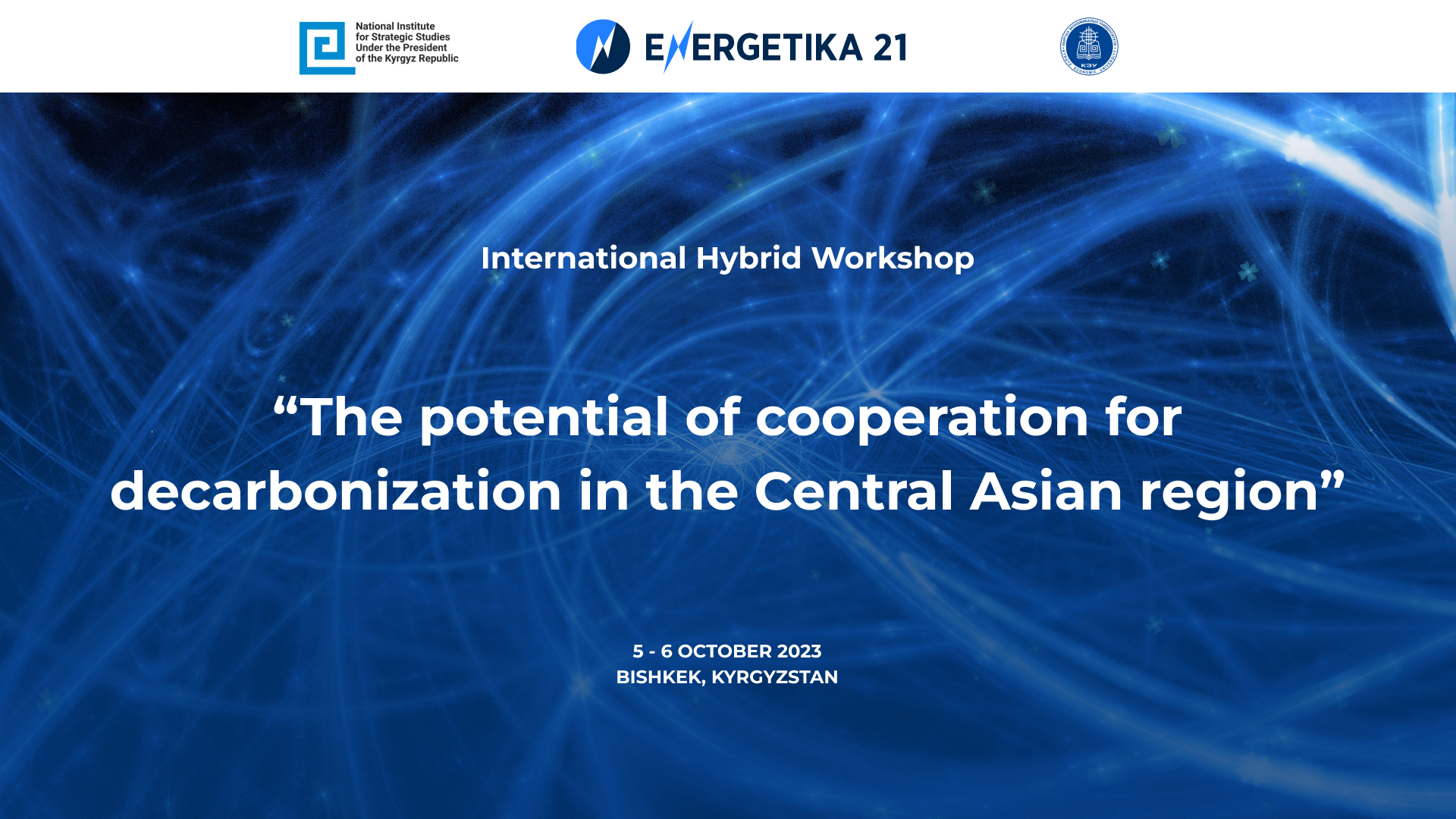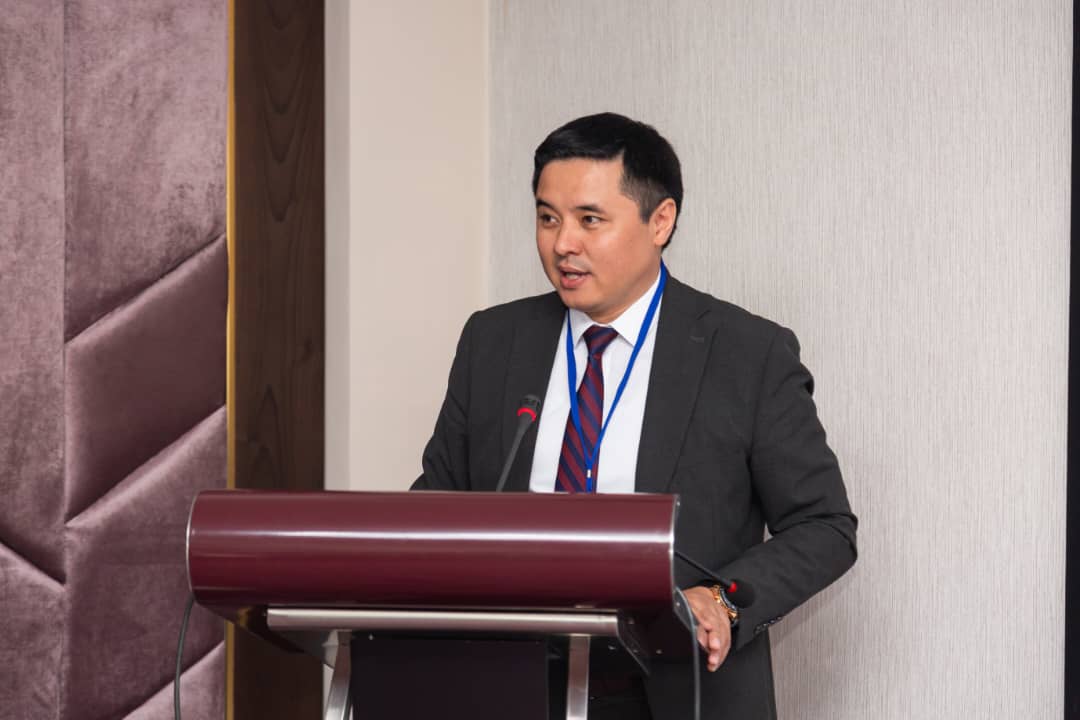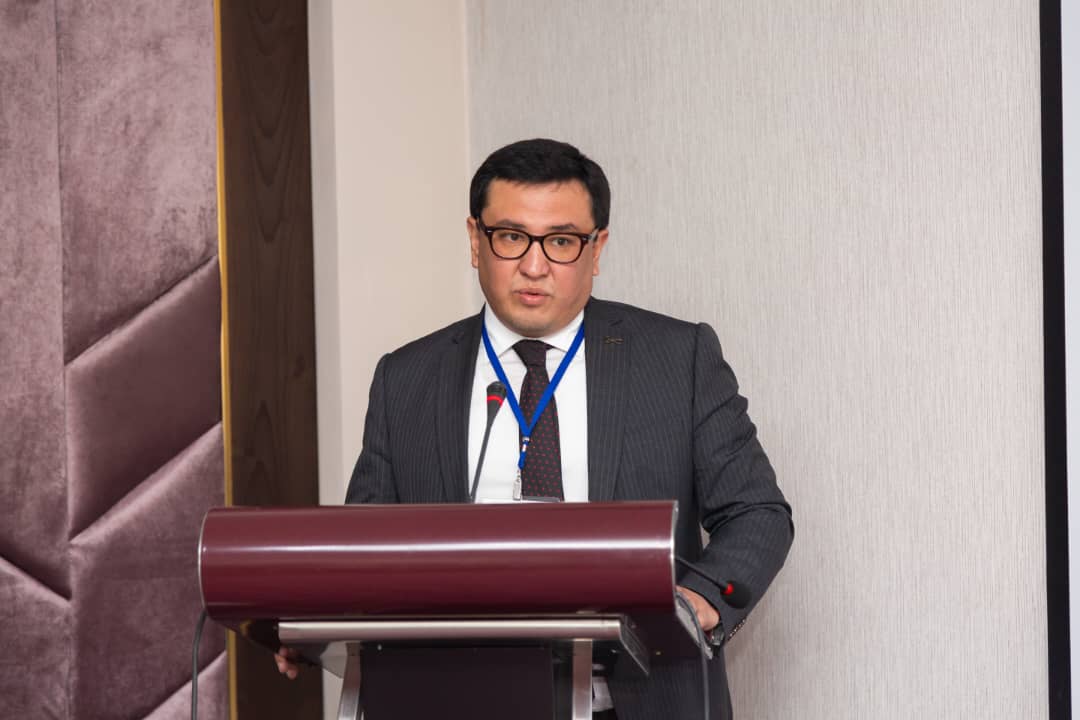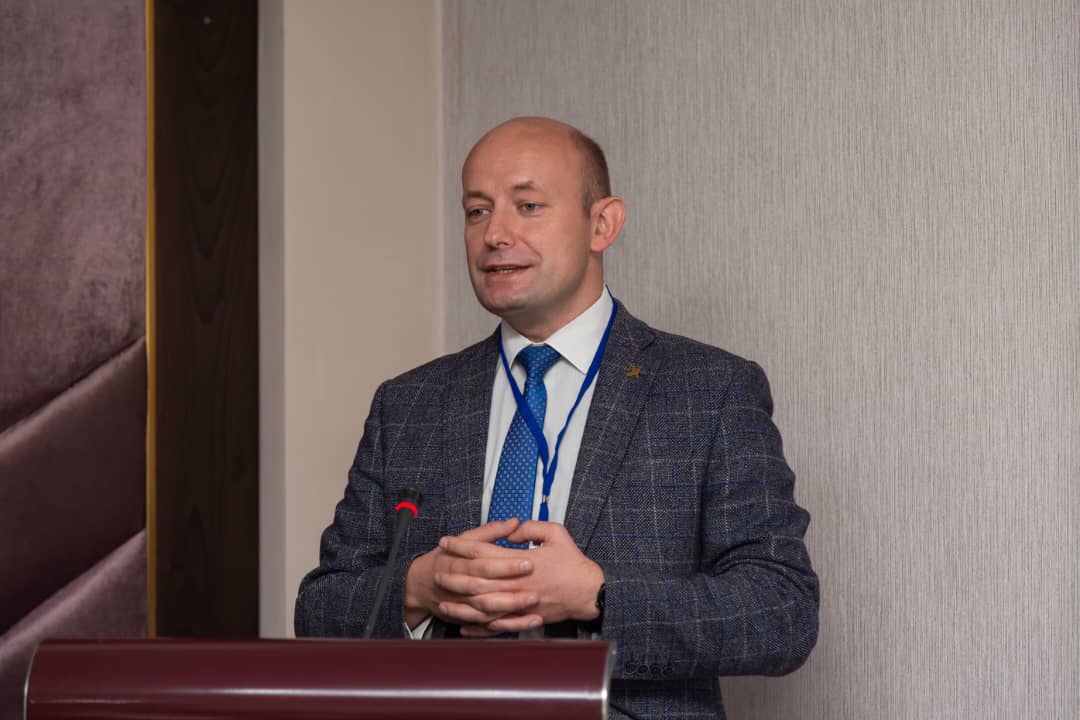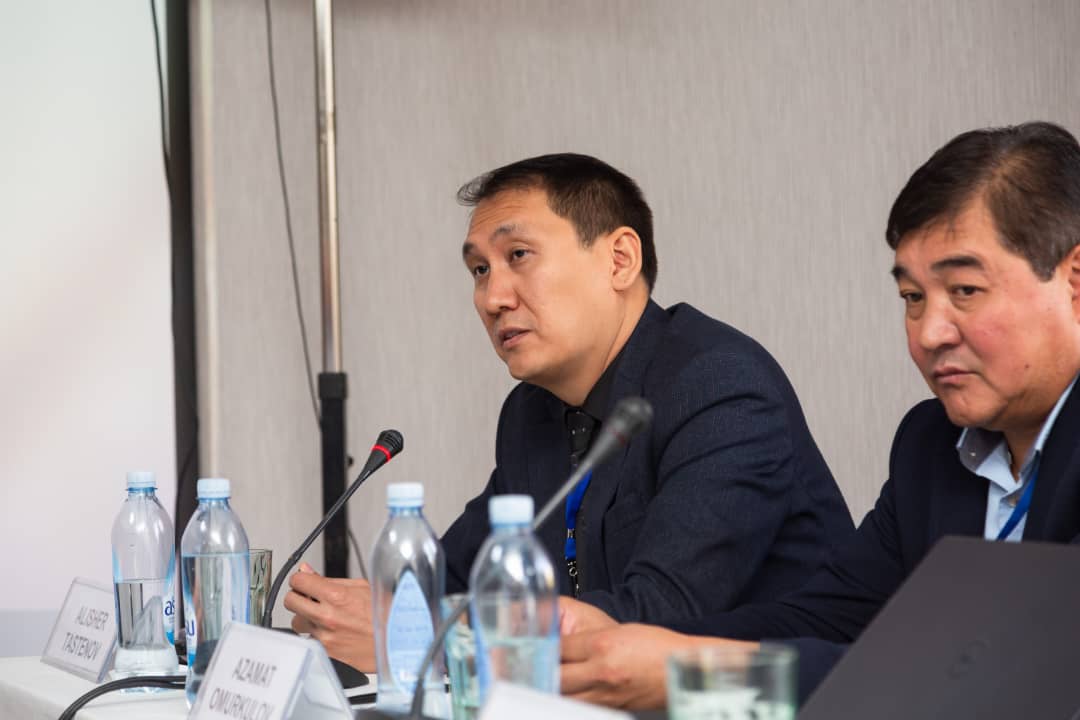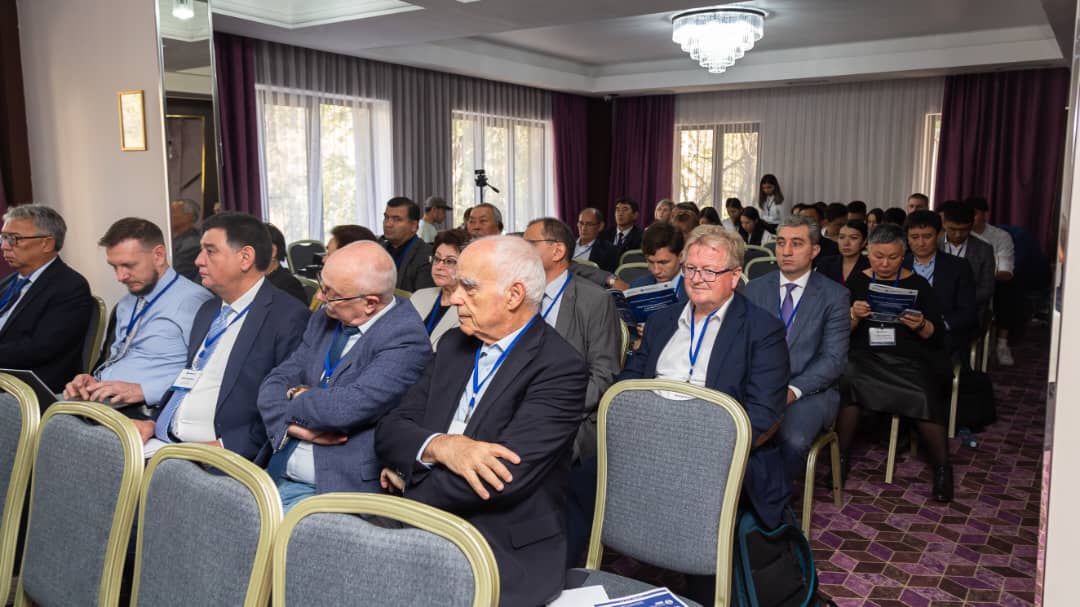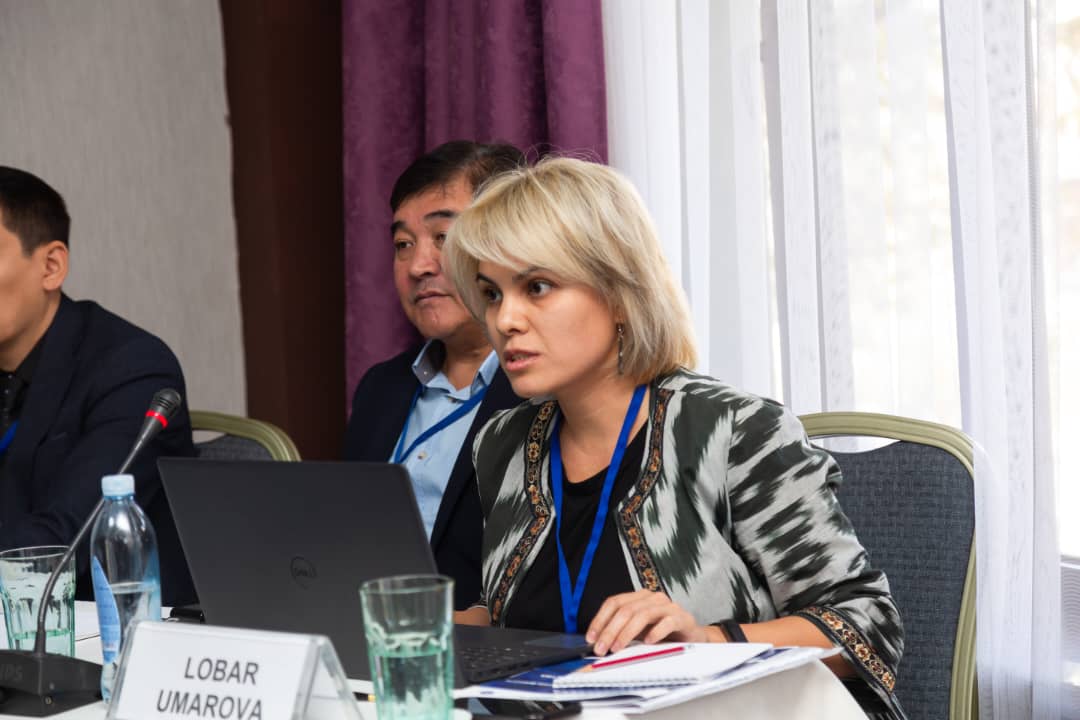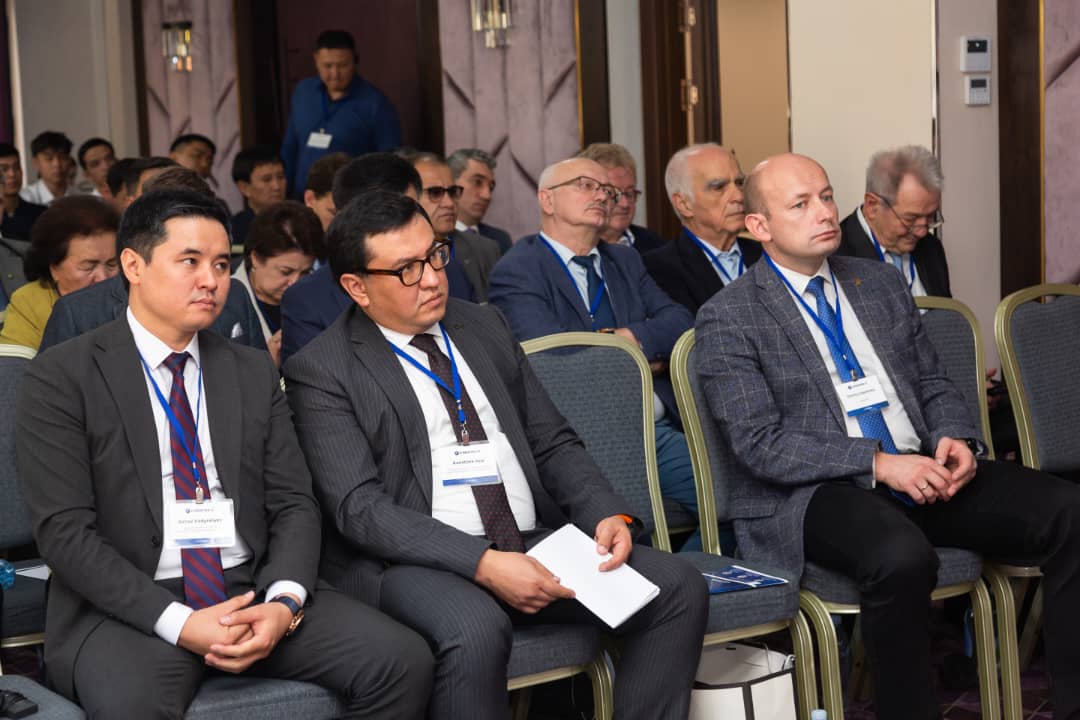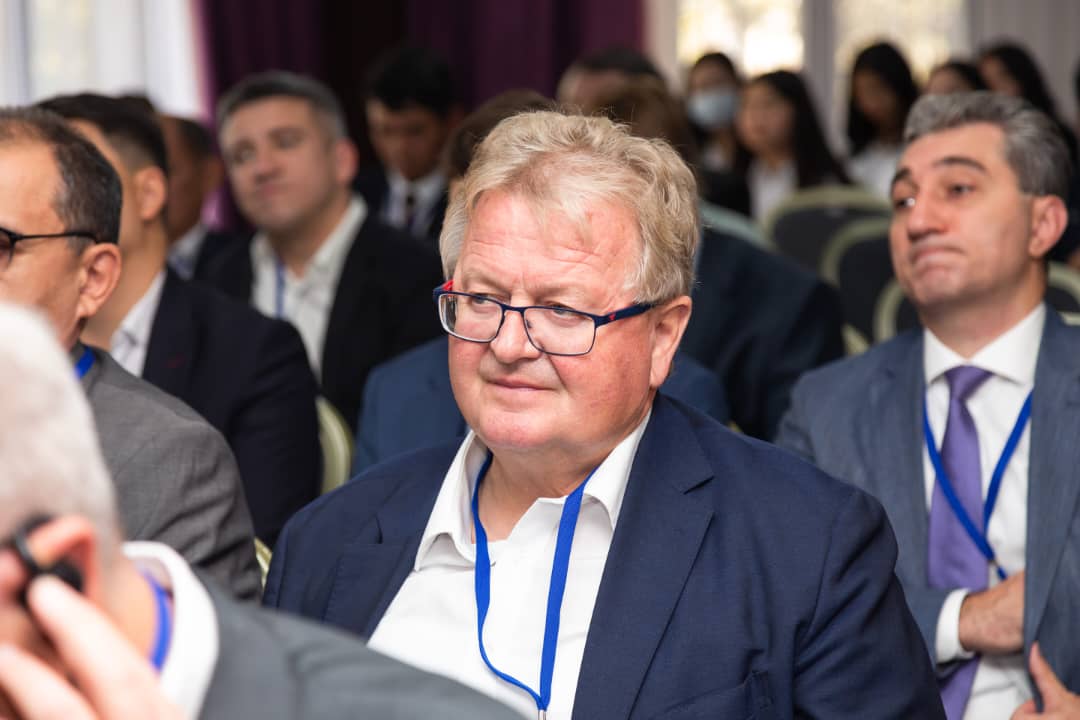The International Hybrid Workshop on the topic “The Potential of Cooperation for Decarbonisation in the Central Asian Region„ was held by UNECON on 5-6 October 2023 in Bishkek and served as a preparatory discussion towards the International Scientific Conference “Energetika 21”. The co-organizers of the workshop were National Institute of Strategic Analysis under the President of the Kyrgyz Republic and Kyrgyz Economic University.
The Kyrgyz Republic has significant hydropower resources, while at the same time has difficulties in ensuring sustainable year-round generation. Climate issues here play a significant role due to the melting of glaciers, the main sources of water and energy in the region.
The location of the Kyrgyz Republic in the center of Tien Shan mountain range, at the intersection of energy and other resource interests of the Central Asian region, creates a special platform for discussion of issues, analyzing existing practices for the prevention of climate change and adaptation to the consequences.
More than 70 participants from Kyrgyzstan, Kazakhstan, Russia, Germany, the UK, the USA, Uzbekistan, Tajikistan and Norway joined the workshop. In particular, Institutes for Strategic Studies under the Presidents of all Central Asian countries were actively engaged in the discussion.
«The workshop is also of a great significance as our region is experiencing strong effects of climate change. Therefore, the President of Kyrgyzstan S. Zaparov promotes the ideas of «green economy» and decarbonization», mentioned Kanatbek Aziz, the director of the National Institute for Strategic Studies under the President of Kyrgyzstan.
The first day addressed the challenges of decarbonisation in the region, energy strategies and goals for energy transition of all countries in the Central Asia. The Session 1 focused on the challenges of the energy transit in various countries and in terms of different sectors (cement industry, transport and heating sector) as well as regional strategies of RES development.
Within the second session various approaches to RES development in different world regions and regional strategies in Central Asia, as well as CCUS technologies and hydrogen energy were presented by experts.
The following session addressed the prospects for cooperation in the transit to clean energy, in particular, transport decarbonisation based on new international transport corridors.
«One of the examples for such cooperation is development of new transport corridors. These corridors will contribute to trade and logistics development as well as to decarbonisation since they can be equiped with infrustracture for gas fuel vehicles, that will make a good example of cooperation between Russia, Kyrgyzstan, Kazakhstan and Uzbekistan towards net-zero», Dmitry Vasilenko, Vice-rector for International Relations, Saint Petersburg State University of Economics.
In the conclusion there was held the panel discussion on improving cooperation in the region and the search for solutions to decarbonize particular industries.
The workshop has created a platform for experts from all states in the Central Asia to find common ground for the interests and develop practical recommendations for cooperation in achieving carbon neutrality and effective transition to a green economy.

